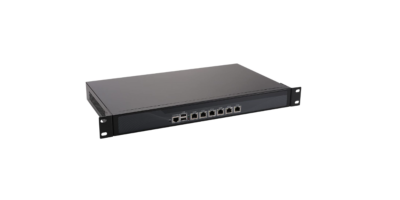The healthcare industry is undergoing a digital revolution, with cloud computing playing a critical role in transforming how providers store, access, and manage patient information. However, with great convenience comes great responsibility. Healthcare organizations must ensure that protected health information (PHI) is secure, private, and compliant with federal regulations. That’s where HIPAA-compliant cloud services come in. In this blog, we’ll explore how HIPAA-compliant cloud services protect sensitive patient data and why they are essential for any healthcare organization handling electronic health records (EHRs) and other critical information.
These specialized cloud solutions are designed to meet the rigorous security and privacy standards outlined in the Health Insurance Portability and Accountability Act (HIPAA).
What Is HIPAA and Why Does It Matter?
HIPAA, enacted in 1996, is a U.S. federal law designed to safeguard patient health data. It applies to healthcare providers, insurers, and any third parties (known as Business Associates) who process or store PHI.
The law includes specific requirements for:
- Data privacy and confidentiality
- Security and encryption protocols
- Access control and user authentication
- Breach notification and response
Any cloud service provider handling PHI must ensure their platform complies with HIPAA regulations. Failing to do so can result in hefty fines, legal action, and loss of patient trust.
The Importance of Cloud Computing in Healthcare
Before diving into how compliance works, let’s take a moment to understand why cloud computing has become so vital to healthcare organizations:
- Scalability: Easily expand storage or computing power as patient records grow.
- Remote Access: Physicians and staff can securely access data from any location.
- Cost Savings: Reduces the need for expensive on-site infrastructure.
- Business Continuity: Ensures data is backed up and recoverable in the event of a disaster.
But these benefits come with risks – especially if patient data is not handled according to compliance guidelines.
1. Data Encryption: Shielding Patient Data at All Times
Encryption is one of the most effective tools for data protection. It converts readable data into an unreadable format that can only be accessed with the correct encryption key.
HIPAA requires both data at rest (stored data) and data in transit (data being transferred) to be encrypted. This ensures that even if unauthorized users intercept or access the data, they can’t make sense of it.
Key Features of HIPAA-Compliant Encryption:
- AES-256 encryption standard
- Secure Sockets Layer (SSL) for data transfer
- Encrypted backups and cloud storage
HIPAA-compliant cloud services protect sensitive patient data by implementing these encryption protocols across all access points, ensuring PHI remains safe from cybercriminals and unauthorized access.
Only 4-7% of the health system’s IT budget is invested in cybersecurity. HIPAA-compliant cloud services safeguard sensitive patient data through encryption, access controls, and secure data storage protocols.
2. Access Control and User Authentication
One of the foundational principles of HIPAA is that only authorized personnel should be able to view or manipulate patient data. Cloud platforms must provide robust access control mechanisms to ensure this.
Common Access Controls Include:
- Role-based access (RBAC)
- Multi-factor authentication (MFA)
- Audit logs and user activity tracking
For example, a nurse may only have access to specific patient records relevant to their department, while an administrator may require full system access. HIPAA-compliant cloud services protect sensitive patient data by limiting access based on each user’s specific role and responsibilities.
Additionally, real-time monitoring and automated alerts help detect unusual login patterns or unauthorized access attempts – critical for early threat detection.
3. Physical and Network Security
Security isn’t only about what happens in the cloud. HIPAA compliance also requires strong physical and network defenses to ensure complete data protection.
Security Measures Often Include:
- Secure data centers with limited physical access
- 24/7 surveillance and biometric entry controls
- Firewalls, intrusion detection systems (IDS), and antivirus software
- Redundant systems for disaster recovery and failover
HIPAA-compliant cloud providers typically invest heavily in infrastructure to ensure that physical and network-level security meets federal and industry standards.
4. Backup and Disaster Recovery
Healthcare organizations must proactively prepare for unexpected events – such as cyberattacks, natural disasters, or system failures – to ensure uninterrupted operations. HIPAA mandates regular data backups and tested disaster recovery plans to ensure data can be quickly restored without compromising patient care.
What to Look for in Backup Strategies:
- Automated and encrypted cloud backups
- Frequent backup schedules (hourly, daily)
- Geographic redundancy (data stored in multiple locations)
- Recovery time objectives (RTOs) and recovery point objectives (RPOs)
These measures ensure healthcare providers can continue operations with minimal downtime, safeguarding both compliance and patient safety.
5. Business Associate Agreements (BAAs)
Any cloud provider storing or processing PHI on behalf of a healthcare organization is considered a Business Associate under HIPAA. This means they must also comply with HIPAA regulations and sign a Business Associate Agreement (BAA).
What a BAA Includes:
- Security responsibilities of the provider
- Protocols for reporting breaches
- Specific rules for data handling and access
Choosing a cloud provider who offers a signed BAA is not optional—it’s a legal requirement. BAAs ensure accountability and shared responsibility for maintaining the privacy and security of PHI.
HIPAA-compliant cloud services protect sensitive patient data by establishing clear legal agreements that define the responsibilities and expectations for both parties.
How to Choose a HIPAA-Compliant Cloud Provider
When selecting a provider, healthcare organizations should evaluate:
- Experience in the healthcare sector
- Compliance certifications (e.g., SOC 2 Type II, HITRUST)
- Support for BAAs
- 24/7 technical support and incident response
- Transparent policies for data access and storage
Working with a provider who understands HIPAA requirements and offers proven solutions tailored to the healthcare industry ensures long-term compliance and peace of mind.
Conclusion
As the digital transformation of healthcare accelerates, safeguarding patient data must remain a top priority. HIPAA-compliant cloud services protect sensitive patient data through a layered approach that includes encryption, access controls, physical security, backup systems, and regulatory compliance.
These services not only reduce the risk of data breaches and penalties but also empower healthcare providers to deliver better, faster, and more secure patient care.
Stay Compliant. Stay Secure. Partner with MedicalITG.
At MedicalITG, we specialize in providing robust, HIPAA-compliant cloud solutions tailored for healthcare providers, clinics, and medical practices. From secure data hosting to 24/7 support, we ensure your patient data stays protected and compliant – every step of the way. Call us today at (877) 220-8774 or email us at info@medicalitg.com to learn how we can help you stay secure and compliant.










